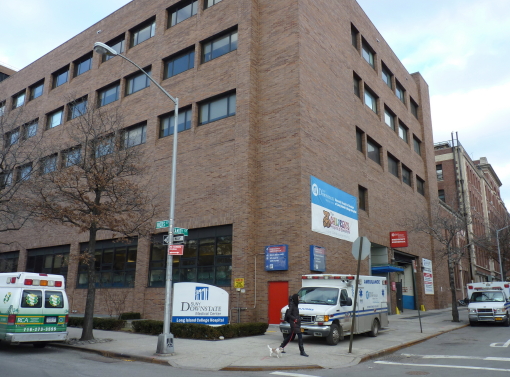SUNY board officially approves sale of Long Island College Hospital to Fortis
The end of historic LICH in Brooklyn; Cobble Hill development to come

Long Island College Hospital. Photo: Mary Frost
After more than a year of community protests and litigation, trustees for the State University of New York (SUNY) voted to approve the sale of Brooklyn’s Long Island College Hospital (LICH) to developer Fortis Property Group.
SUNY’s board of trustees expressed the hopeful belief that the resolution’s approval represented an end to their admittedly bungled stewardship of the Cobble Hill hospital.
“Let me say it’s a great moment and a time of relief,” chairman H. Carl McCall told the board after their vote approving the resolution. “It’s been a long, arduous and damaging process . . . However, it is now behind us.”
